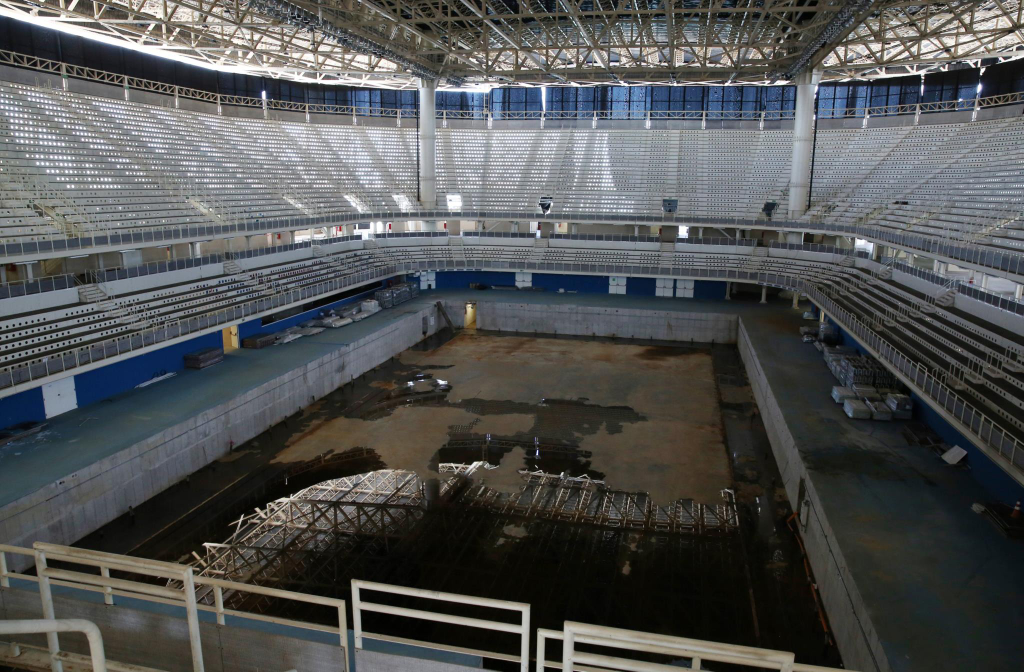
Corruption and neglect plagues Rio following the Olympic Games
By Greg Waldock, Staff Writer
We all knew the Brazil Summer Olympics were going to be bad for the host country. Endless accounts of corruption, lax safety regulations, bad athlete living conditions, and enormously expensive one-use stadiums convinced many that this would be a disaster—if not during the games themselves, then surely shortly after for Brazil. But how did it really end up? How is Rio now? Was it as bad as people suspected? Sadly, yes.
Brazil was struck by a brutal recession after the Games; “the worst recession in decades,” according to an article from the Independent. The enormous Macarana Stadium is now completely unused, neglected, and graffiti’d as Rio de Janeiro leaves the million-dollar electricity bill unpaid. Despite being a world-class stadium of great fame and scale, it has been used for zero soccer games since the Games ended. On top of this, any frequenter of downtown Vancouver will know that large stadiums require a lot of infrastructure. As with our own city during our Olympics, Rio built infrastructure to deal with the demands of a massively popular tourist attraction suddenly cropping up in the middle of their city. Temporary parking spaces, additional roads, increased bus services, and other new systems are all extremely costly to maintain, and Brazil can no longer afford to do so.
The country hosted both the World Cup and the Summer Olympic Games in rapid succession, and both were widely reported to be rife with corruption and bribery. Hosting both a Cup and an Olympics is profitable stuff, for certain construction companies and any politician willing to favour them over the law. The Brazilian Supreme Court has opened investigations into these accusations across the stadium, including against then-mayor Eduardo Paes. Everything from golf courses to the very subway system of Rio itself are under investigation for being related to money funneling and corruption, and 2016 found Brazil in a state of political upheaval that continues today.
The state of the athletes’ hotels and temporary homes also became infamous, starting hashtags on Twitter as the competitors found brown water flowing from sinks, crumbling walls, and views of desperate poverty from their windows. Despite enormous amounts of money spent to clean up Rio for the Games, that poverty has only worsened as crime reached record-breaking levels. The athlete residences also remain unused and falling into further disrepair. Olympians couldn’t escape the brutal cost-cutting measures at home either, as their medals have already begun to fall apart due to poorer materials used in their making.

